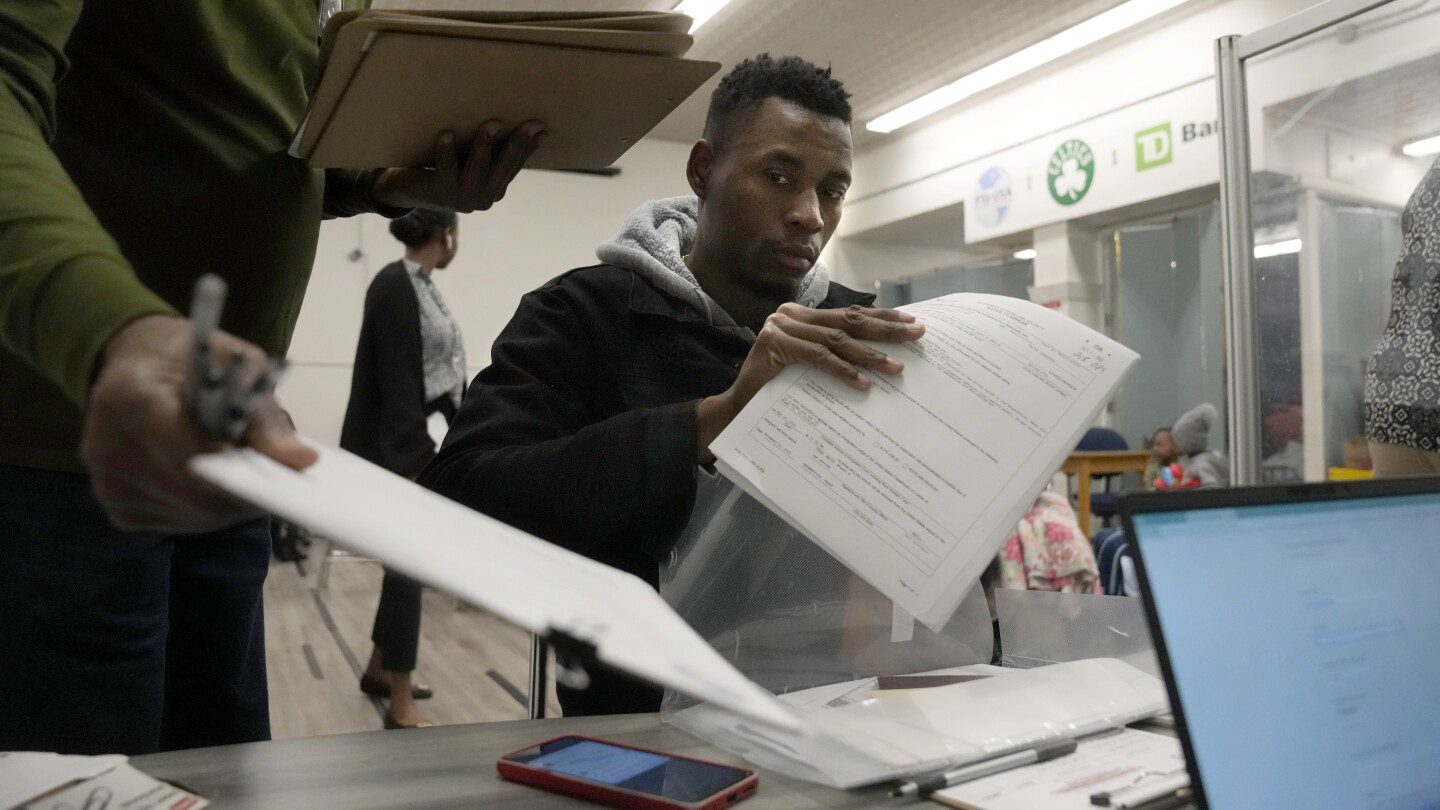
WASHINGTON (AP) — The Trump administration has announced the termination of protections that have safeguarded approximately 500,000 Haitians from deportation. As a result, these individuals will lose their work permits and may face removal from the United States by August.
This decision, revealed on Thursday, is part of a broader initiative by the Trump administration to fulfill campaign pledges aimed at enforcing mass deportations and reducing the Temporary Protected Status (TPS) provisions that were significantly broadened under the Biden administration, which provided coverage for around 1 million immigrants.
The Department of Homeland Security issued a statement indicating its intention to reverse a Biden-era ruling that renewed Temporary Protected Status for Haitian nationals. TPS allows individuals to remain legally in the U.S., although it does not offer a pathway to permanent residency.
Beneficiaries of TPS depend on government renewals of their status as it nears expiration. Critics, including members of the Trump administration, argue that long-term renewals of TPS status have become routine, regardless of conditions in the individual’s home country.
“For decades, the TPS system has been misused and exploited,” said Homeland Security in its announcement. “For instance, Haiti has held TPS designation since 2010, and the data indicates that each extension has enabled more Haitian nationals, including those who entered the U.S. unlawfully, to obtain protected status.”
According to Homeland Security, around 57,000 Haitians were eligible for TPS protections in 2011, but that figure surged to 520,694 by July of the previous year.
“To send back 500,000 individuals to a nation facing extreme levels of violence is utterly inhumane,” remarked Tessa Petit, a Haitian American and executive director of the Florida Immigrant Coalition. She affirmed that Haiti meets all criteria for protective status. “We sincerely hope that as they reconsider, they prioritize humanity over political motivations.”
Farah Larrieux, a 46-year-old Haitian who has enjoyed TPS since 2010, expressed that this decision illustrates a disregard for conditions in Haiti. “Nobody is safe in Haiti,” asserted Larrieux, who owns a small communications firm in South Florida, the area where the majority of Haitians in the U.S. reside. “This acts as a significant disruption for those who have been contributing to this nation.”
It remains uncertain how quickly individuals may be deported once their TPS status expires. Some may opt for alternative forms of protection, and logistical challenges could hinder the implementation of mass deportations.
Haiti’s migration director, Jean Negot Bonheur Delva, noted that only 21 Haitians have been deported under the Trump administration so far, all of whom were already slated for deportation under Biden. A total of nine flights to Haiti were reported in 2024 by Witness at the Border, an advocacy organization monitoring flight data.
Delva raised concerns about the repercussions of repatriating individuals to a nation still grappling with violence and where over 1 million people are homeless due to gang unrest. “It’s heartbreaking that individuals seeking a better life will be forced to return,” he lamented. “Given the security crisis and lack of resources, their situation will be dire.”
Last year, over 5,600 fatalities were documented in Haiti, according to U.N. reports. Many displaced individuals are living in perilous and overcrowded temporary shelters, including abandoned governmental structures where assaults have become increasingly frequent.
Gangs currently control 85% of Haiti’s capital, escalating their attempts to dominate more areas. Recent violent outbreaks have resulted in numerous civilian deaths.
In response to the situation, Haiti’s government has established a committee to assist deportees.
“They are children of Haiti. A mother must embrace her children upon their return from wherever they are,” he remarked.
Established in 1990, TPS was designed to prevent deportations to countries experiencing natural disasters or civil turmoil, allowing people temporary work authorization for up to 18 months at a time.
By the conclusion of Biden’s tenure, TPS safeguarded around 1 million immigrants from 17 countries, including Venezuela, Haiti, Honduras, Nicaragua, Afghanistan, Sudan, Ukraine, and Lebanon.
The Trump administration has already taken steps to revoke TPS protections for Venezuelans.
In response, two nonprofit organizations on Thursday filed a lawsuit contesting that decision.
___
Contributions to this report were made by Associated Press journalists Evens Sanon in Port-au-Prince, Haiti, and Gisela Salomon in Miami.









